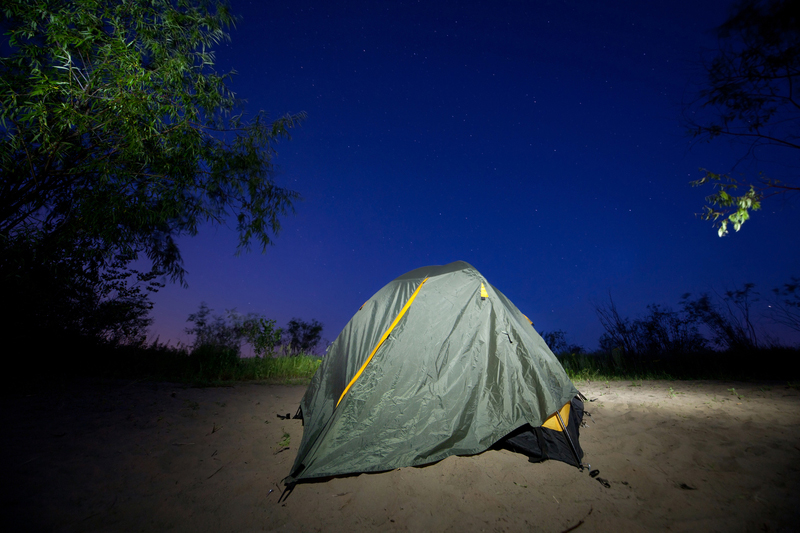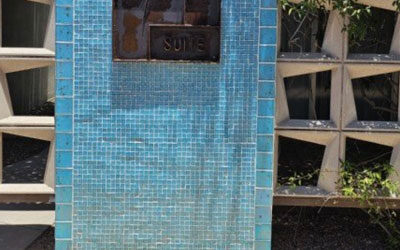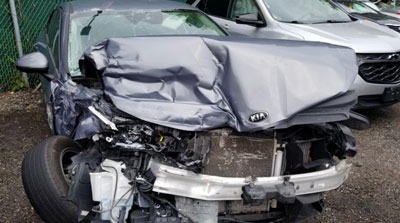
This is a subject near and dear to my heart, as someone who has been forced to live outdoors for the past four years due to severe environmental illness compounded by the poverty that often comes with chronic invisible illness. Given the recent posts on impending car living by fellow Planet Thrivers I feel compelled to write about the realities of homelessness.
It is not an adventure. Yes, sometimes people talk about it this way, including myself, but this is a defense mechanism to keep sane when your reality sucks. You have to have a sense of morbid humor when you are forced to poop in a hole year round, pee along roadsides (in bushes) because the rest stops are too much to bear. It is hard to laugh though when you become violently ill, by yourself, in the middle of nowhere and sometimes without cell coverage to call for help. I have had full body neuralgia while lying in the front seat of my car and not able to move at all. I have puked on myself (and yes, pooped myself) when I had the stomach flu and no amenities. All I could do was to clean myself in the break of the stormy weather as best I could with cold water and change my clothes. These are just a few of the indignities I have endured.
I understand the fear and frustration that comes with facing the prospect of becoming homeless. I remember clearly in May 2009 as I was coming to grips with my worst nightmare. I could not sleep for days prior to leaving for the desert. I finally sucked it up, left and never looked back. I cried in my tent that night, alone and afraid of what was to come. I still have moments when I try to envision my future as being healthy, independent and no longer homeless. I envision myself working and supporting myself once more. But then the grave reality of my present circumstance comes over me like a frigid tidal wave, dragging me back into the open sea of despair.
I can’t emphasize enough how deciding to live in your car, tent or whatever in the woods is dangerous. I have read the statistics and the news regarding just how brutal people can be to a homeless person. The psychology is that the homeless are perceived as weak and that they have no one who cares about their welfare, making them easy targets for harassment. I have experienced firsthand the degradation of being talked down to by law enforcement. I remember one officer contemptuously asking me if this was a “lifestyle”. I simply replied saying “no” when I wanted to say “who the hell chooses to freeze their ass off as a lifestyle? Get real.”
I could go on about the other perils of living/surviving this way. This is no way to live and the fact that some people are forced into this standard of living is unconscionable in our nation. Yes, there are those who really do choose to live homeless, but I think they are the minority. Any sane, rational individual will not choose this for themselves, their families and friends. Safe and affordable housing is a necessity, not a luxury, and is one of the pillars needed to facilitate healing. To obtain and maintain good health the basics such as a safe home, clean water and clean food are essential. Why this is so hard for some to grasp is beyond me.
I am going to list by category what is necessary to survive and give some resources on where to find supplies. These things are imperative to survival.
SHELTER
This is the first rule of survival. You need a place to keep out of the elements. Getting cold and wet can lead to hypothermia, even if you are in a car. The car is the obvious shelter of choice, but sleeping in it constantly can lead to back problems (which I have found out the hard way). You have to come to terms with the fact that sleeping in your car constantly will also ruin the interior making any chance of resale difficult.
There are many styles of tents and many pricing options. I recommend middle-of-the-road tents. You don’t need an expedition style tent, but you shouldn’t go for the ones at Walmart either. You need a tent that will stand up to high winds and the weight of snow. Tents were also not designed as permanent shelters, they are recreational. I have two, a one-man bivy tent and a two-man tent. I wanted a backup for one or the other in case one got destroyed. Each has its pros and cons. One person tents are light and compact, however they do not have a lot of room for extra gear inside. Two person tents are roomy, and allow you to stow stuff in there with you but are a little more bulky. Look for the following qualities:
• Seasons – What seasons are they for? Are they three season or four? Tents that are for all seasons are more expensive than those used in just three seasons or for the summer. Since you will be living outdoors full-time, it would be best to opt for an all-season tent. This is tricky for people with MCS because these tents will be treated with water-repellant to make them durable, with additional chemical treatment on the floor of the tent (for durability as well).
• Material – Most tents are made from waterproofed taffeta or nylon/polyester fabrics. The floors are rubberized for waterproofing. It took a few months to air out one of my tents. For a while it smelled like jet fuel whenever it got hot in the sun. With sufficient airing out, washing/rinsing and hanging in the sun (and rain if need be) it should off gas nicely (but do not use soap, it will ruin the waterproofing).
• Durability – Keep in mind you are living in this tent, not camping, and need to gauge on the description if it will hold up to the demands of being used constantly.
• Ease of set up – You don’t want a bunch of pieces to put the tent together. Keep it simple.
The tents I have are: Mountain Hardware bivy/one person, three season tent and North Face two person tent, three season. Places where you can get deals are Campmor, Sierra Trading Post, North Face, and Cabelas. Campmor usually has some of the best deals.
In addition to a tent you will need at least two tarps, thick grade or “mil”. The lower the “mil” the thicker the tarp material and vice versa. I have a 20×20 and an 8×10 tarp. The large one I use as a shelter or privacy screen and the smaller one acts as a privacy screen and can be placed under the tent to keep the floor dry in heavy rains (but this can also be accomplished by using two large garbage bags as well).
Along with the tarps you will need at least two ropes, 50 ft nylon and any longer length of 550lb parachute cord. You will also need bungee cords (of various sizes) and metal stakes. You will also need a hammer to drive the stakes into the ground.
SECURITY
You need to be prepared to defend yourself against any aggression whether it is from a person or an animal. I have heard that some people with environmental illness (EIs) travel with firearms. I am totally against this not because I am anti-gun, but because I am for responsible gun ownership. As an EI it is doubtful that the cleaning solvents and lubricants used to maintain a firearm will be tolerated. To be proficient in the use of a weapon in self defense, you need to practice with it. If you don’t practice you might as well throw the cartridges at the aggressor because you’ll have a better chance of hitting them.
As a homeless person, there is no way of properly securing a firearm to prevent it from being stolen. Hiding it somewhere in the car is not enough. Any burglar can easily find it and you also don’t want it so well hidden that you can’t get to it in an emergency. Some have commented that they feel the mere sight of a firearm will deter a criminal. No it won’t. It will only draw unwanted attention and create a dangerous situation. Others have talked about having BB guns or toys as a means of self defense. Shooting a would-be assailant with a BB gun is like swatting a bull with a fly swatter, you’ll only piss them off.
If you are serious about defense consider these: Pepper spray or a Taser. You need to make sure that whatever is coming at you gets no closer than 12 feet. Pepper spray comes in 30 ft, 12ft and 8ft ranges. I don’t know what the reach of a taser is, but it probably is less than 12 feet. There are many places that sell these products. I purchased my Pepper Spray Defense Kit (all three sizes) from Cabelas. The manufacture is UDAP based out of Bozeman MT.
Know your territory. Know where the party spots are and talk with the forest service about potential problems with drugs or drug manufacturing in the forest. They will know the areas that are questionable.
Do not act like a victim. Stand straight, look people in the eye, do not disclose too much information about yourself or your circumstances. This is not the time to serve as an ambassador to spread the information about MCS/EI.
Anything can be used as a weapon. Your hands, feet, knees, elbows, teeth. You can pick up rocks, sticks, forks, knives, pots/pans, hot grease, hot water. The combinations are endless. You do not have to be trained in self defense to defend yourself, you just need a good understanding of the human anatomy and the confidence of how to take advantage of it. However, if you do ever get a chance to take a self defense course I strongly recommend it.
The next segments I will cover are water, food, hygiene, clothing, survival gear, and first aid.
read Part 2 | Part 3 | Part 4 | Part 5
photo: © Pavel Losevsky | Dreamstime.com










Really well presented, thank you.
I wish there was a better way.
Hi Vanessa,
I’m so excited to read this! I am a 50 yr old woman, living on the road most of the year, almost always camping in a tent in national forest and occasionally campgrounds. My reasons are somewhat different from yours, but there are many similarities
I just spent time at an intentional community in Arizona and I liked it more than the other two I’ve been to here, but hate that all of them have WiFi and allow cell phones. So you see people’s (mostly men’s) addiction to the internet, even in a gorgeous place with tons of space.
I can’t use the computer for very long , or I’d read more.
Many blessings, you are an inspiration!!
“I have had full body neuralgia while lying in the front seat of my car and not able to move at all. I have puked on myself (and yes, pooped myself) when I had the stomach flu and no amenities. All I could do was to clean myself in the break of the stormy weather as best I could with cold water and change my clothes. These are just a few of the indignities I have endured.”
My body in severe nerve pain went on for years. Well, I still have it. I was lying in the car unable to move for 5 years. I had addisons disease but who would bother diagnosing me. With a cortisol level in the morning of less than 30 it was a medical emergency but I just lay there unable to move. Yes, sometimes puking on myself in the middle of the night but I couldn’t get out of the car and wash my bedding in the middle of a park for the fear of being attacked or picked up by the cops. If you get picked up by the cops they usually try to drag you off to the mental ward or they did with me because who could possibly be allergic to paint on walls & flooring.
I’m still homeless, now living on morphine, my allergies have only lessened just a small amount, gum trees don’t put me into a coma anymore but most grass & trees still bother me as does all the VCOs etc.
This time of the year, my birthday & xmas sitting by myself without a call from anyone I just can’t think of a reason for suffering any longer.
Anybody know if Vanessa settled down or if she is still ok?
She is welcome to contact me. I’m considering moving across the country to a clean place, I might be driving through there in the next month or so.
Maybe there is some way I can help out.
Does she need any supplies or anything maybe?
Thanks!
Here is my email. [email protected]
Hi, i have MCS and last year i lived in a tent for 6 months and i have just movd into a tent again. i cant find anywhere to live inside a house that i feel well, its either new furnishings or mold that make me feel ill. its very difficult though as i have 2 young children aged 7 and 8. they are also similarly affected and so is my ex. we all lived in a moldy flat for 2 years and after that we became ill and sensitive to chemicals to put it mildly. i feel for all you guys who are living in a tent too and completely understand how it is a neccesity for survival and NOT a choice. good luck and stay safe. x x x
[email protected] is my email